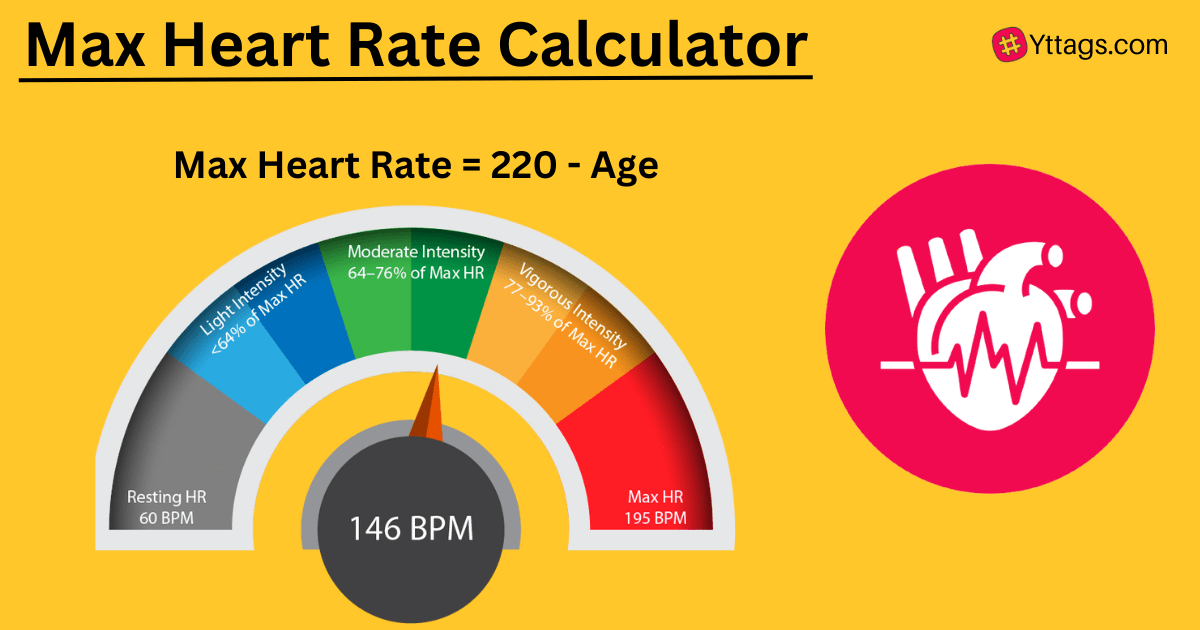Max Heart Rate Calculator
Find out your max heart rate with our calculator and guide.
Current Age:
If you use this great tool then please comment and/or like this page.
Average Rating: Tool Views: 356
Average Rating: Tool Views: 356
Subscribe for Latest Tools
How to use this Max Heart Rate Calculator Tool?
How to use Yttags's Max Heart Rate Calculator?
- Step 1: Select the Tool

- Step 2: Enter Your Current Age And Click On Update Button.

- Step 4: Check Your Max Heart Rate Calculator Result

Our online max heart rate calculator estimates the maximum heart rate of an individual, which is the highest heart rate an individual can safely achieve through exercise stress and depends on age. Max heart rate formula The most common way to find your maximum heart rate is by using one of the many age-based equations.
If you want to link to Max Heart Rate Calculator page, please use the codes provided below!

FAQs for Max Heart Rate Calculator
What is a Max Heart Rate Calculator?
A Max Heart Rate Calculator is a tool used to estimate a person's maximum heart rate during physical activity, typically based on their age. One common formula is 220 minus age.
Why should you calculate your maximum heart rate?
Calculating your maximum heart rate helps determine safe and effective exercise intensity, aiding in personalized workout plans and preventing overexertion during physical activity.
How long is it safe to be at max heart rate?
Because of the primary types of fuel being burned (a combination of ATP/CP and muscle glyogen), maximum heart rate is only sustainable for short bursts ranging from 10 to 60 seconds. After that, your body needs to downshift in speed and start burning more oxygen.
Is maximum heart rate not directly affected by age?
Maximum heart rate is often influenced by age, as it generally decreases with age. However, there can be individual variations, and other factors like fitness level can also play a role.
What happens if you go over max heart rate?
Exceeding your maximum heart rate during exercise can lead to discomfort, fatigue, and potential health risks, including an increased risk of cardiac events, so it's generally not advisable.